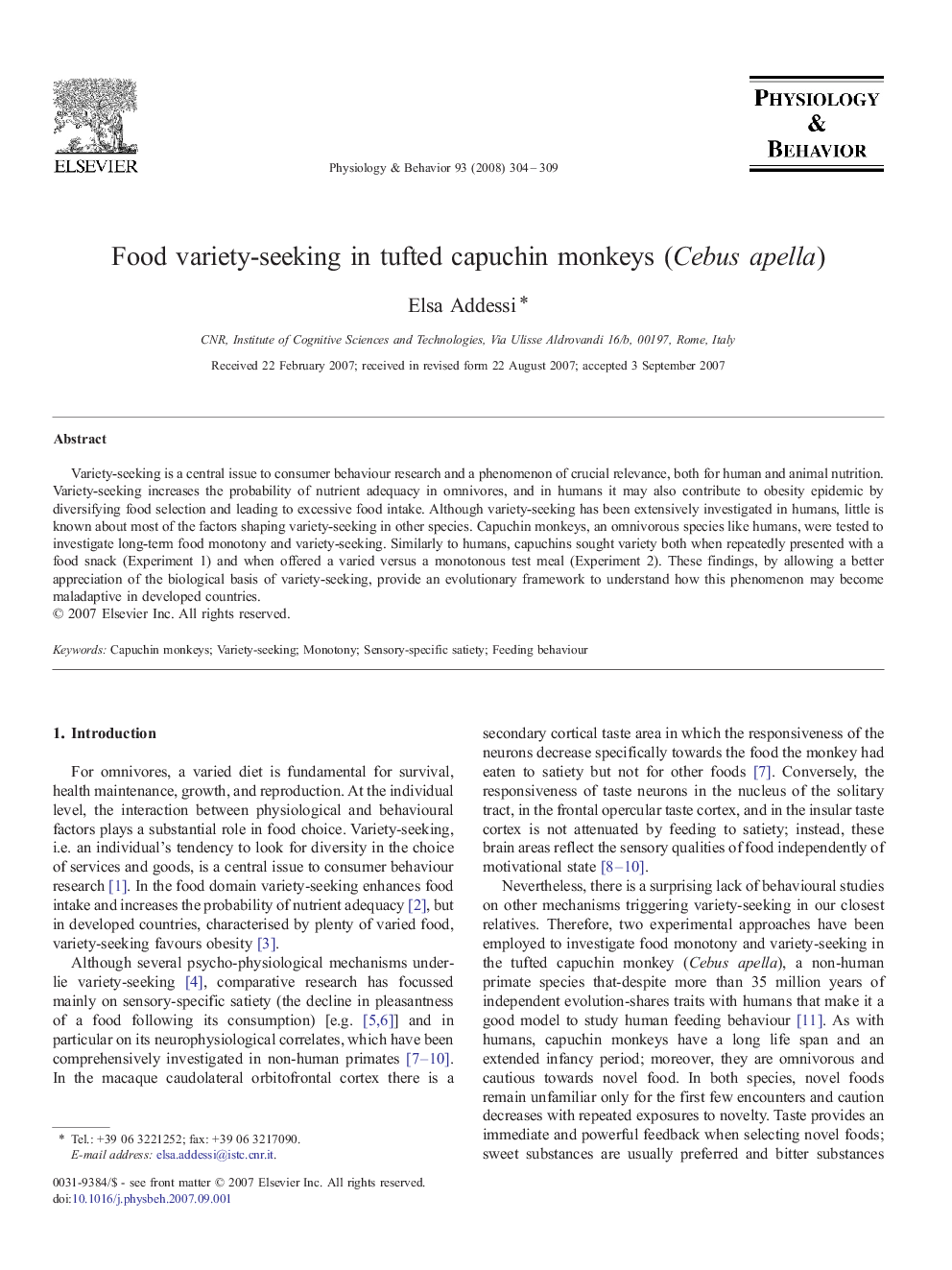| Article ID | Journal | Published Year | Pages | File Type |
|---|---|---|---|---|
| 2845632 | Physiology & Behavior | 2008 | 6 Pages |
Abstract
Variety-seeking is a central issue to consumer behaviour research and a phenomenon of crucial relevance, both for human and animal nutrition. Variety-seeking increases the probability of nutrient adequacy in omnivores, and in humans it may also contribute to obesity epidemic by diversifying food selection and leading to excessive food intake. Although variety-seeking has been extensively investigated in humans, little is known about most of the factors shaping variety-seeking in other species. Capuchin monkeys, an omnivorous species like humans, were tested to investigate long-term food monotony and variety-seeking. Similarly to humans, capuchins sought variety both when repeatedly presented with a food snack (Experiment 1) and when offered a varied versus a monotonous test meal (Experiment 2). These findings, by allowing a better appreciation of the biological basis of variety-seeking, provide an evolutionary framework to understand how this phenomenon may become maladaptive in developed countries.
Related Topics
Life Sciences
Biochemistry, Genetics and Molecular Biology
Physiology
Authors
Elsa Addessi,
